- Fast results
- 4,000+ locations
- 4.8 star rating
Need Help? (888) GET LABS


What you eat impacts your brain health in multiple ways–from memory and concentration to mood control and long-term protection against cognitive decline. If you’re constantly experiencing brain fog, it’s high time to evaluate your diet. You may be missing out on the best foods for brain health.
Here are the top brain-boosting foods you should include in your grocery list.
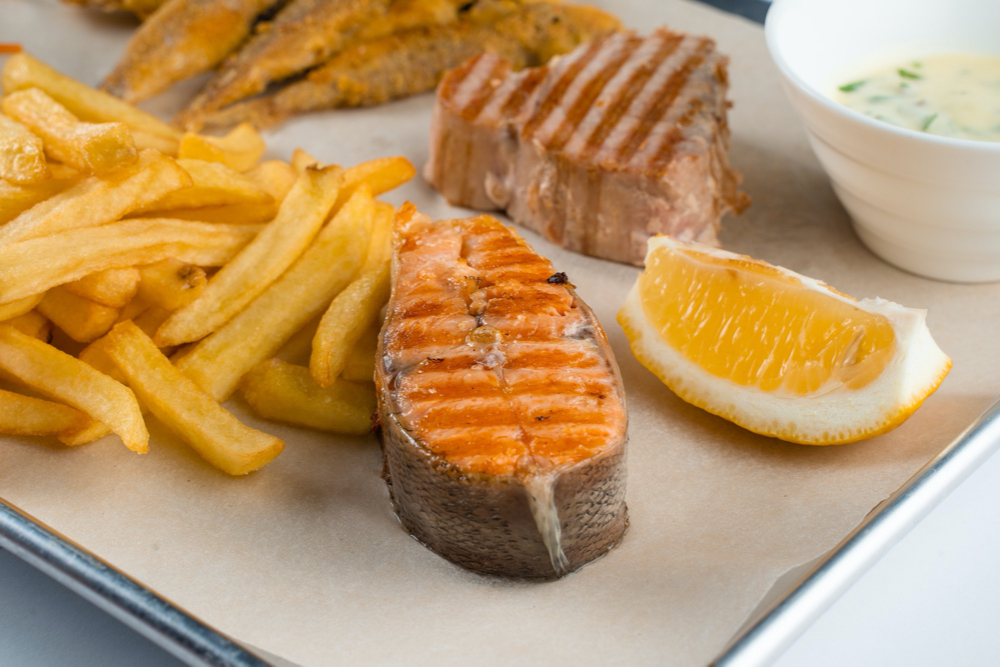
The omega-3 fatty acids that are found in high levels in fatty fish make it an ideal food source for improved brain health. Omega-3 fatty acids contain DHA (docosahexaenoic acid) and EPA (eicosapentaenoic acid).
DHA, in particular, is a structural component of the brain’s gray matter. Gray matter is a crucial part of the brain, as activities like memory formation, mood regulation, learning, and movement control are processed in this area.
On the other hand, DHA and EPA contribute to neural signaling, which is essentially how brain cells (neurons) communicate with one another. The smooth signaling process allows better flexibility and fluidity in the cell membrane (1).
Omega-3 fatty acids are also known for lowering inflammation, making them a champion food source for cardiovascular health. The same effect is beneficial for brain health. Its anti-inflammatory properties also help reduce cognitive decline, either due to age-related degeneration or neurodegenerative disease (2).
To fully capitalize your intake of omega-3 fatty acids, include fatty fish like bluefin tuna, salmon, anchovies, sardines, mackerel, herring, and striped bass in your diet for brain health.
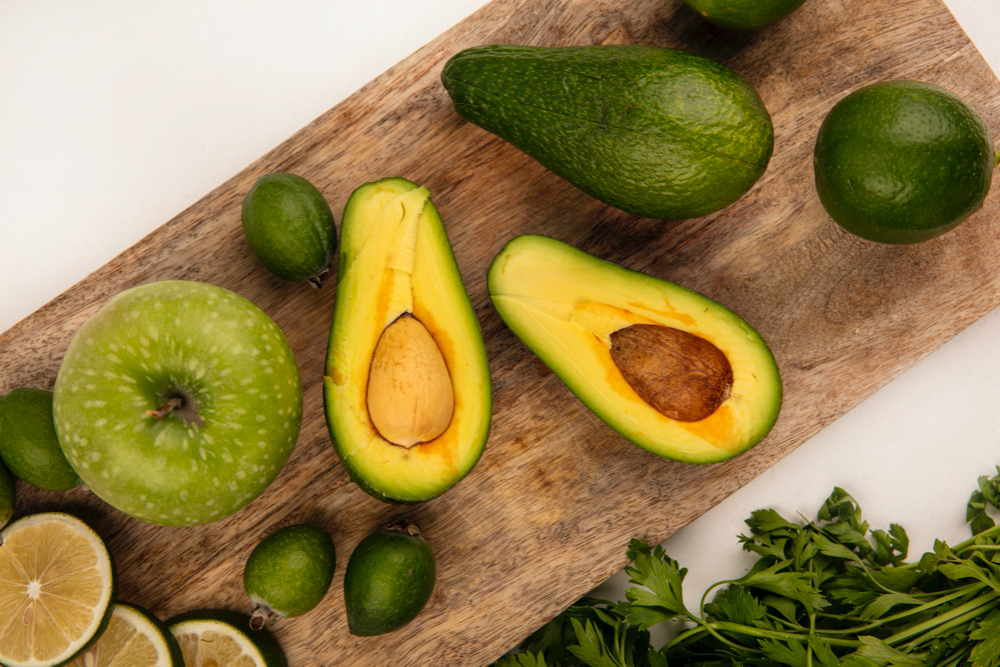
Avocados are not only great on toast or guacamole, but they are also the top-billing source of healthy fats among plant-based foods. These healthy fats are monounsaturated, which is ideal for improved blood flow. Naturally, efficient blood flow to the brain ensures enough oxygen and nutrients for the brain cells, ensuring uninterrupted cognitive function.
In addition, avocados contain a carotenoid antioxidant called lutein, which helps protect neurons from age-related damage or cognitive decline (3). You can also absorb other nutrients, such as folate, vitamin E, and potassium, that support optimum brain health.
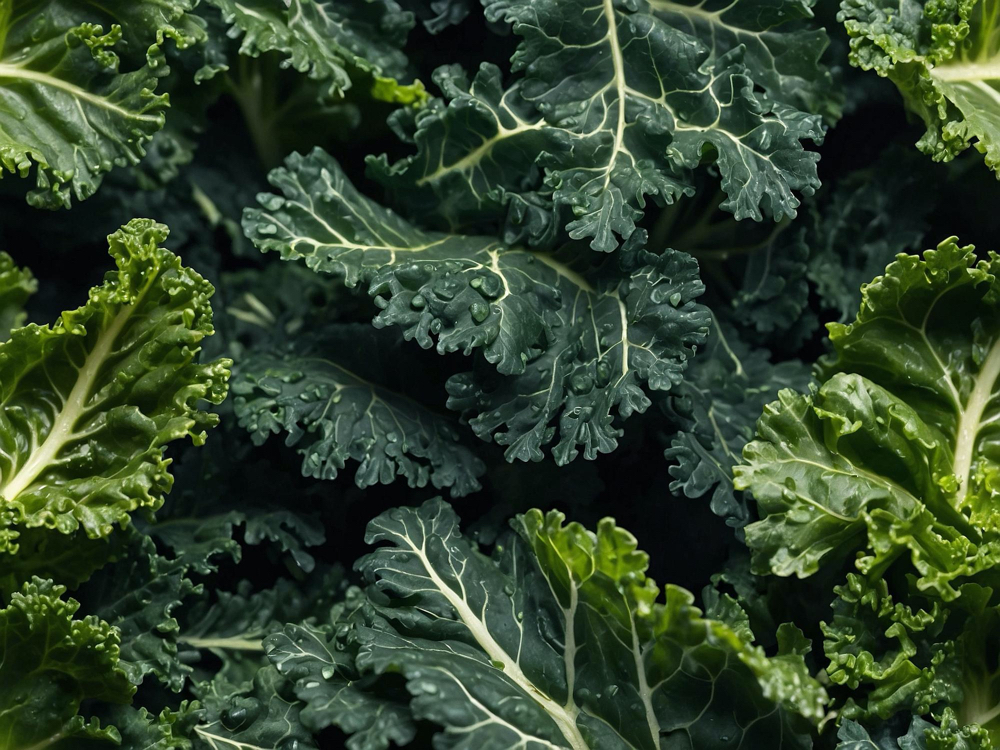
Vegetable lovers who always include kale, Romaine lettuce, cabbage, and spinach in their diet will love the fact that these leafy greens can boost brain health in multiple ways. Leafy greens contain various nutrients that help improve blood flow in the brain. Antioxidants, in particular, are abundant in these vegetable types, which contributes to preventing brain cell damage by free radicals.
In addition, leafy greens are rich in folates, which impact the production of the neurotransmitter serotonin, which is crucial in mood regulation. Plus, they also contain abundant vitamin K, which helps improve cognitive function.
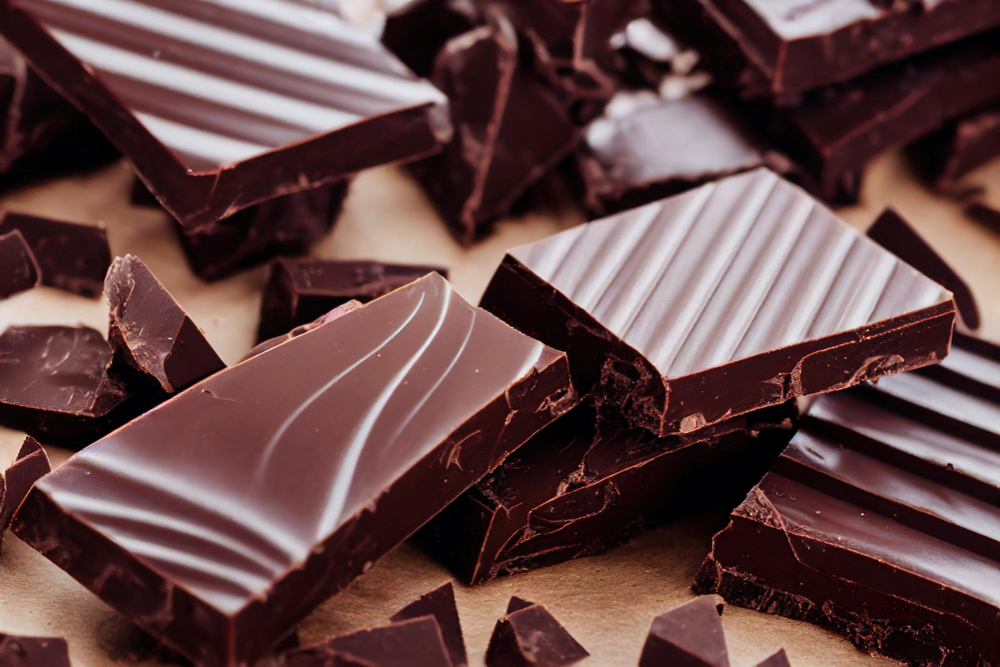
Cocoa flavonoids, which are rich in dark chocolates, can improve cognitive performance by contributing to blood flow efficiency in the brain and potentially enhancing memory formation (4). Eating dark chocolates allows proper blood circulation, ensuring the brain cells receive adequate oxygen and nutrients to work well.
Additionally, flavonols in dark chocolates are reported to reinforce neuroplasticity, allowing the brain to reorganize or restructure in response to stimuli. Enhanced neuroplasticity helps one to learn new skills or recover from brain injuries caused by a stroke or external trauma (5).
Also read: 5 Benefits of Dark Chocolate for Diabetics
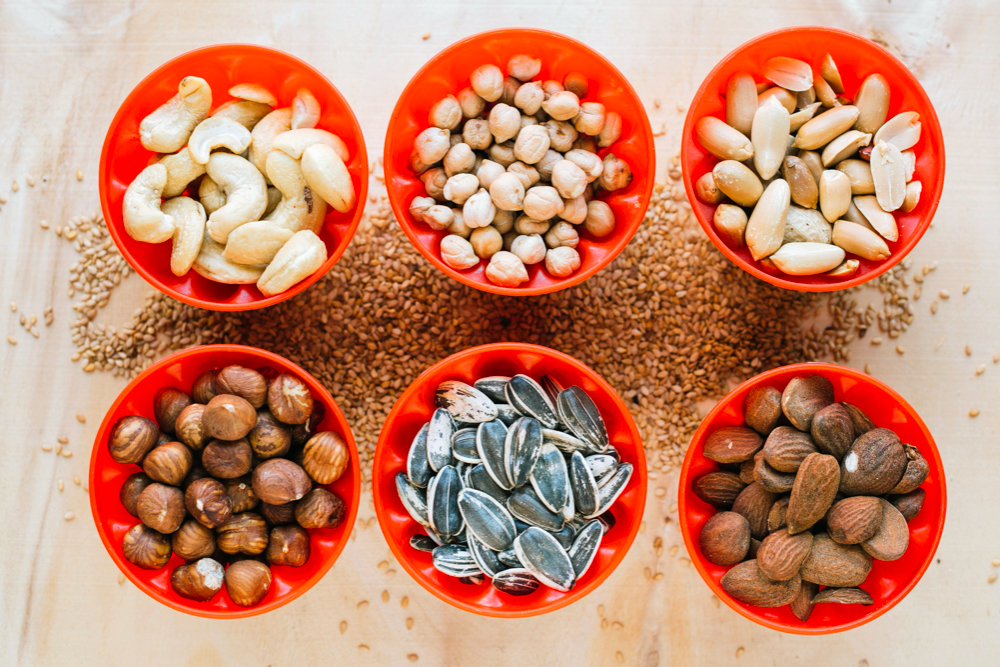
Much like avocados, nuts and seeds contain plenty of unsaturated fats and omega-3 fatty acids, which help enhance memory and learning. Omega-3 fatty acids are key nutrients in the formation of neurons. On the other hand, unsaturated fats ensure neurons communicate efficiently, which is crucial for uninterrupted cognitive function.
Nuts and seeds are also popular superfoods for brain health as they enhance learning. They help improve memory, particularly by supporting blood flow for the formation of verbal memory in adults (6).
Consider snacking on walnuts, pumpkin seeds, flaxseeds, sunflower seeds, almonds, and cashews in between work, studying, or any activity that demands maximum brain power.
All kinds of berries contain some of the highest antioxidants that fight off oxidative stress–a known contributor to neurodegenerative issues like Parkinson’s disease and Alzheimer’s disease (7). Plus, the flavonoids in berries can also help reduce inflammation in the brain that may cause age-related memory problems or cognition.
Additionally, other nutrients and bioactive compounds support improved blood circulation, leading to increased brain functionality. That said, including berries such as blueberries, blackberries, raspberries, and strawberries in your diet can benefit your brain health.
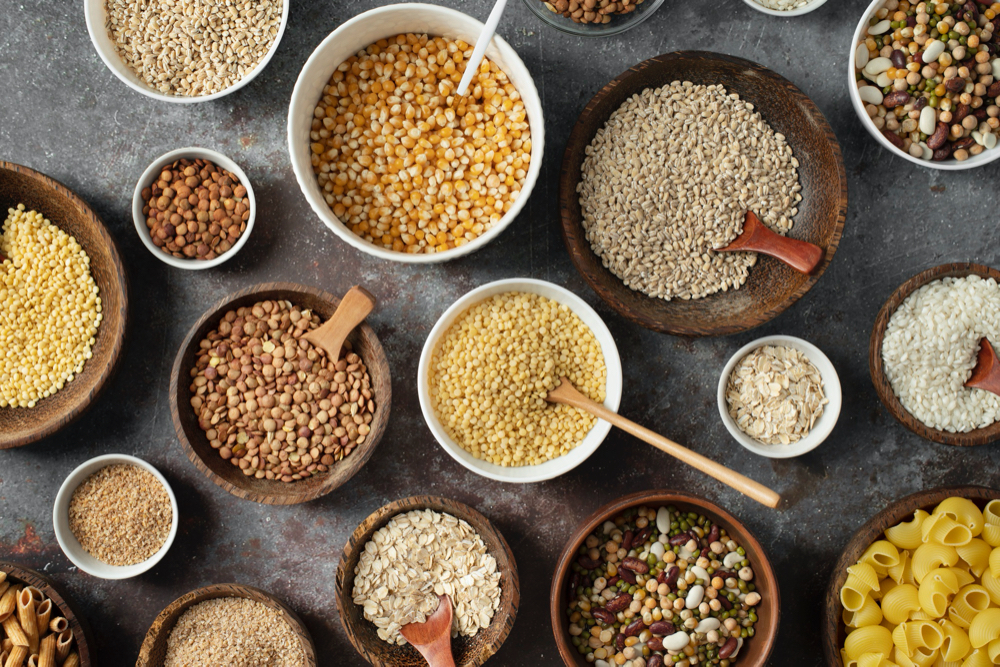
Many whole grains are packed with nutrients that promote optimum brain health. The external layer of the whole grain kernel, called the bran, is rich in fiber, and vitamin B helps produce neurotransmitters to ensure uninterrupted communication between brain cells.
Whole grains are processed more slowly than refined grains. Thus, they supply a steady load of energy to the brain as opposed to a sudden burst due to a glucose spike. Studies also show the potential of whole-grain bioactive compounds in managing inflammation in the brain–a known trigger for cognitive decline.
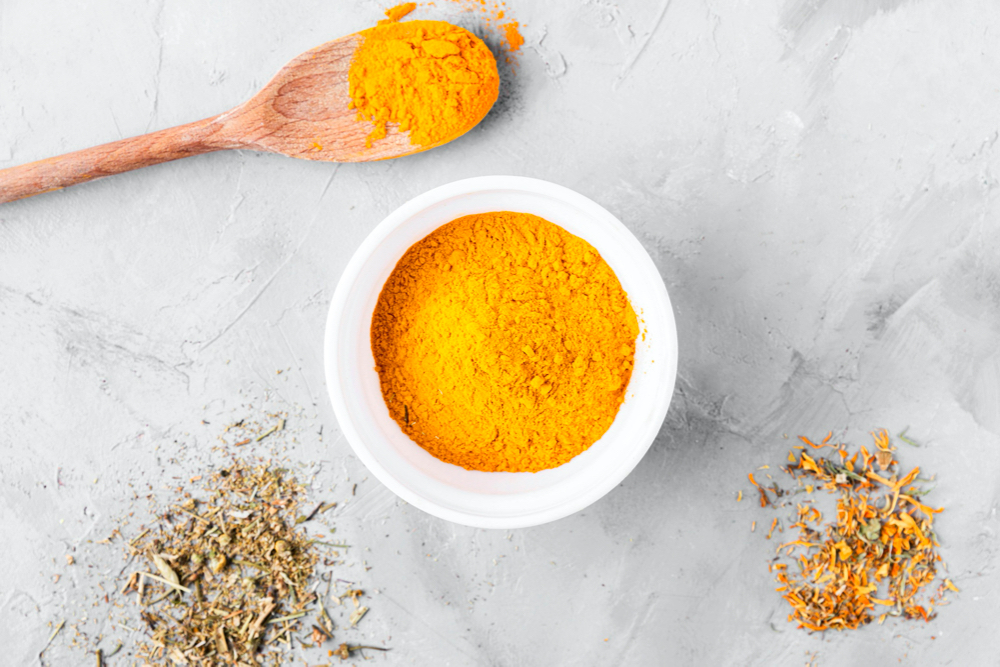
Also known as the golden spice, turmeric brings a unique aroma and flavor to many dishes, distinctively in Asia. But more than its culinary wonders, turmeric is also a potential source of brain health supplements.
Turmeric has curcumin, a chemical that has been the subject of multiple scientific studies due to its antimicrobial, anti-inflammatory, antioxidant, and anticancer properties–all of which play crucial roles in protecting cognition (8).
In addition, curcumin has been found to increase brain-derived neurotrophic factor (BDNF), a protein that strengthens neural growth and survival. It also contributes to neuroplasticity, which enhances learning and memory (9).

Black coffee or any version with less sugar is ideal for those who want to be more alert during the day. Caffeine is the primary ingredient of coffee and is best known for inhibiting adenosine, a neurotransmitter that triggers drowsiness.
Coffee is also a mood enhancer. Caffeine stimulates the production of neurotransmitters dopamine and serotonin, which regulate the brain’s reward system and mood stabilization.
While drinking coffee must fall under the recommended limits depending on your health status, there is no question that coffee provides health benefits in cognitive function. Consult your doctor to rule out any drawbacks so you can maximize its advantages.

Labeled as the healthiest drink in the world, green tea is loaded with nutrients, including antioxidants that help protect brain cells from diseases like Parkinson’s and Alzheimer’s.
It also contains caffeine, although in lower amounts than coffee, which increases alertness and improves mood. It also has an amino acid called L-theanine, which encourages relaxation without making you feel sleepy, especially as it works synergetically with caffeine (10).
All vitamins are essential for brain health in one way or another. However, B vitamins are known to support brain function by improving neurotransmitter regulation, memory processing, and risk reduction for cognitive health issues like dementia. Common sources of B vitamins include fish, poultry, legumes, dairy products, whole grains, leafy greens, and fortified foods.
Improving your memory involves various tactics. Proper nutrition, regular exercise, quality sleep, and stress management contribute to cognition and peak memory formation. Additionally, regular mental training keeps your memory sharp. Consider doing crossword puzzles daily, getting into hobbies, reading books, learning a new language, or doing other activities that allow you to think thoroughly.
Two of the most recommended fruit types for enhanced brain wealth are berries and citrus fruits. Blueberries contain antioxidants called anthocyanins that improve memory and protect the neurons from damage. Citrus fruits like oranges, lemons, and grapefruits help produce neurotransmitters that regulate mood and cognition.
Nourishing your brain with the right foods is a cornerstone of overall well-being. Be mindful of your diet and include the best foods for brain health as part of your staple meals or regular snacks. Keep in mind that it’s not just about consuming these foods occasionally; consistent intake is key to reaping their full benefits.
1 Swanson D, Block R, Mousa SA. Omega-3 fatty acids EPA and DHA: health benefits throughout life. Adv Nutr. 2012 Jan;3(1):1-7. doi: 10.3945/an.111.000893. Epub 2012 Jan 5. PMID: 22332096; PMCID: PMC3262608.
2 Calder PC. Omega-3 fatty acids and inflammatory processes: from molecules to man. Biochem Soc Trans. 2017 Oct 15;45(5):1105-1115. doi: 10.1042/BST20160474. Epub 2017 Sep 12. PMID: 28900017.
3 Dreher ML, Cheng FW, Ford NA. A Comprehensive Review of Hass Avocado Clinical Trials, Observational Studies, and Biological Mechanisms. Nutrients. 2021 Dec 7;13(12):4376. doi: 10.3390/nu13124376. PMID: 34959933; PMCID: PMC8705026.
4 Socci V, Tempesta D, Desideri G, De Gennaro L, Ferrara M. Enhancing Human Cognition with Cocoa Flavonoids. Front Nutr. 2017 May 16;4:19. doi: 10.3389/fnut.2017.00019. PMID: 28560212; PMCID: PMC5432604.
5 Leyva-Soto A, Chavez-Santoscoy RA, Lara-Jacobo LR, Chavez-Santoscoy AV, Gonzalez-Cobian LN. Daily Consumption of Chocolate Rich in Flavonoids Decreases Cellular Genotoxicity and Improves Biochemical Parameters of Lipid and Glucose Metabolism. Molecules. 2018 Sep 1;23(9):2220. doi: 10.3390/molecules23092220. PMID: 30200398; PMCID: PMC6225491.
6 Nijssen, K. M., Mensink, R. P., Plat, J., & Joris, P. J. (2023). Longer-term mixed nut consumption improves brain vascular function and memory: A randomized, controlled crossover trial in older adults. Clinical Nutrition, 42(7), 1067-1075. https://doi.org/10.1016/j.clnu.2023.05.025
7 Baby B, Antony P, Vijayan R. Antioxidant and anticancer properties of berries. Crit Rev Food Sci Nutr. 2018;58(15):2491-2507. doi: 10.1080/10408398.2017.1329198. Epub 2017 Aug 14. PMID: 28609132.
8 Fu YS, Chen TH, Weng L, Huang L, Lai D, Weng CF. Pharmacological properties and underlying mechanisms of curcumin and prospects in medicinal potential. Biomed Pharmacother. 2021 Sep;141:111888. doi: 10.1016/j.biopha.2021.111888. Epub 2021 Jul 5. PMID: 34237598.
9 Radbakhsh S, Butler AE, Moallem SA, Sahebkar A. The effects of curcumin on Brain-Derived Neurotrophic Factor expression in neurodegenerative disorders. Curr Med Chem. 2023 Jun 2. doi: 10.2174/0929867330666230602145817. Epub ahead of print. PMID: 37278037.
10 Williams JL, Everett JM, D’Cunha NM, Sergi D, Georgousopoulou EN, Keegan RJ, McKune AJ, Mellor DD, Anstice N, Naumovski N. The Effects of Green Tea Amino Acid L-Theanine Consumption on the Ability to Manage Stress and Anxiety Levels: a Systematic Review. Plant Foods Hum Nutr. 2020 Mar;75(1):12-23. doi: 10.1007/s11130-019-00771-5. PMID: 31758301.

© Copyright 2025 Personalabs. All Rights Reserved.